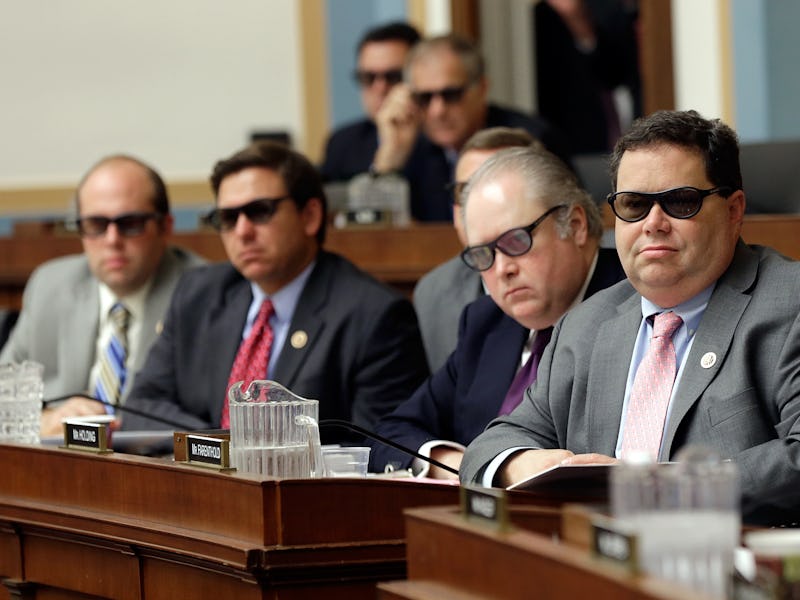The GOP Convention's Science Panel Didn't Address Climate Change
"I don't think the science is definitive."

A panel on science and technology Wednesday in partnership with the Republican National Convention in Cleveland focused extensively on STEM education, but there was an elephant in the room, so to speak. The panel didn’t address human-made climate change, which many scientists believe is the greatest threat to human beings around the world.
Not only was climate change not addressed, but the three members of Congress who were present have voted against measures intended to limit greenhouse emissions. One of the three, Representative Blake Farenthold, a Texas Republican, is skeptical that human-made climate change is real.
“I’m all for doing what we can to protect the environment, but I question some of the science behind it,” Farenthold told Inverse in an interview after the panel.
“I don’t think the science is definitive”
“I don’t think the science is definitive on that, so I’m open to listening to continuing research on the matter,” he said. “I’m not religious on being a climate change denier, or a believer that the end of the world is coming at the hand of man in a short period of time.”
There is overwhelming consensus in the scientific community that burning carbon fuels is warming the planet. NASA has found that 97 percent of scientific papers published in peer reviewed journals agree that “Climate-warming trends over the past century are extremely likely due to human activities. In addition, most of the leading scientific organizations worldwide have issued public statements endorsing this position.”
Climate change is also what analysts call a threat multiplier – that is, it exacerbates existing humanitarian crises. The UN’s office of humanitarian affairs offers alarming data on just how widespread the dangers are. “In the last decade, 2.4 billion people were affected by climate related disasters, compared to 1.7 billion in the previous decade,” according to a UN website. “The cost of responding to disasters has risen tenfold between 1992 and 2008.”
The other members of Congress on the panel, which was sponsored by the Information Technology and Innovation Foundation, were Representatives Bob Latta and Mike Turner. Both Latta and Turner voted to bar the Environmental Protection Agency from regulating greenhouse gas emissions.
Farenthold sees the issue as a matter of deregulating industries in the name of creating jobs. “We’ve got to figure out the best way to protect the environment without putting ourselves at a competitive disadvantage worldwide,” he said. “I think we’re going to see more of a balance with a President Trump than we were with President Obama or would see with a President Clinton.”